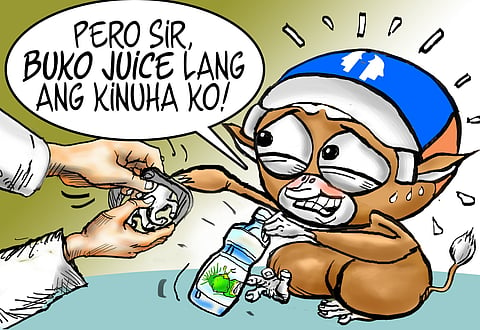
- NEWS
- the EDIT
- COMMENTARY
- BUSINESS
- LIFE
- SHOW
- ACTION
- GLOBAL GOALS
- SNAPS
- DYARYO TIRADA
- MORE

Harvesting coconuts is a tough job. Climbing the tall trees to get at the fruits can be physically taxing and dangerous.
Unclear farm boundaries can also cause a coconut farmer legal troubles, as happened to Pedro Amarille of Bohol.
In 2011, Amarille was sued by the Jabines family, which owned the plantation adjacent to his grandfather’s, for failing to turn over coconuts he had mistakenly harvested from their farm. Amarille apparently had sold the coconuts as copra.
In 2016, a Bohol Regional Trial Court sentenced Amarille to 8 to 14 years imprisonment for stealing 200 coconuts worth P2,000. Later, the Court of Appeals modified his sentence to two to six years.
Amarille elevated the case to the Supreme Court, which recently acquitted him of theft because he “in good faith believed” that his grandfather owned the parcel of land from which he harvested the coconuts, Inquirer.net reported.
The SC ordered him to pay the P2,000 he made from selling the Jabines’ coconuts.
It’s unusual for coconuts to be harbingers of distress, as in Amarille’s case. The versatile plant is known as a source of food, wood, rope, and other valuable materials.
And for Panamanian sailors Jose Olivardia, 21; Blas Olivardia, 30; and Rey Arturo Torres, 27, coconuts are life savers.
The trio was returning to the port of Veracruz after refueling a fishing boat at sea when the vessel’s engine stalled. They drifted without supplies for the next 11 days until a patrolling Colombia Navy ship rescued them some 180 nautical miles off the Colombian port of Buenaventura, Agence France-Presse reported.
The men told authorities that they survived on rainwater and coconuts that came with the current.
“We grabbed them, broke them, and ate them,” Torres and the younger Olivardia said, according to AFP.
The survivors, who were found to be in good health, considered themselves lucky for the coconuts that hydrated them while they were lost at sea.
